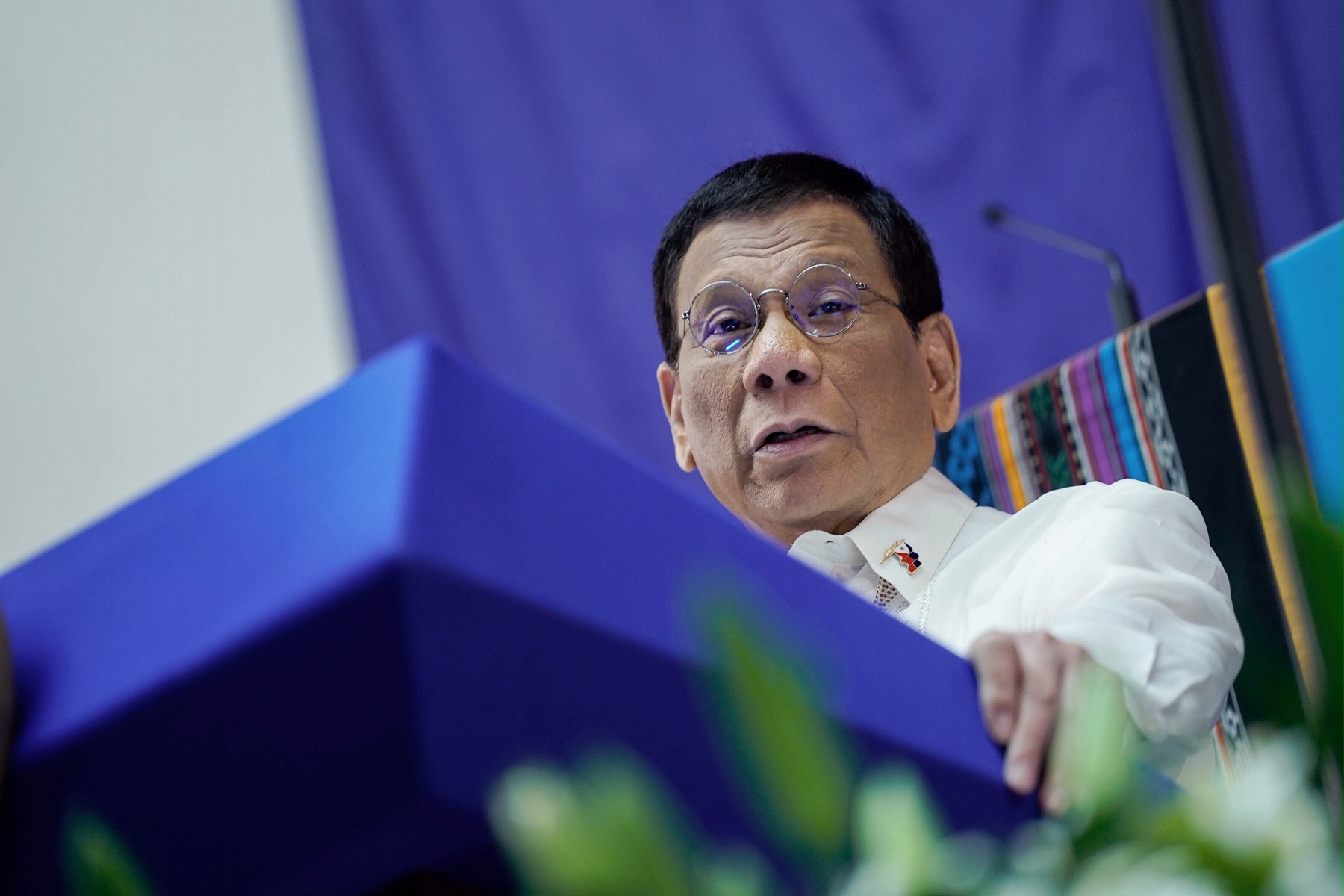

President Rodrigo Duterte delivers his 4th State of the Nation Address at the House of Representatives in Quezon City on July 22, 2019. KING RODRIGUEZ/PRESIDENTIAL PHOTO
Rodrigo Duterte’s fourth State-of-the-Nation (SONA) speech was strong in words but short in action as he expressed frustration and disappointment over two serious issues affecting the Philippines, which were central to his election as president in May 2016 – illegal drugs and corruption.
He even linked the disastrous five-month conflict with the pro-Islamic State militants in Marawi in 2017 to the scourge of illicit drugs although the nexus between terrorism and narcotics trade has yet to be clearly and fully established.
There was indeed rampant drug dealing in Marawi before the conflict, but the illegal trade appeared to have been controlled by local politicians and businessmen who also commanded sizeable private armed groups.
Security officials had confirmed that these private armed groups joined the small radicalized Islamist militants belonging to the Maute group, Abu Sayyaf Group (ASG) and other extremist factions, like the Ansar Khalifa Philippines (AKP) and Bangsamoro Islamic Freedom Fighters (BIFF).
The president stuck to his own narrative about drugs and terrorism, refusing to acknowledge that the seeds of Islamist radicalization had long been planted in the southern Philippines, fueled by decades of armed conflict with Muslim rebels, government neglect, poverty and inequality. It was reinforced by an ideology spread through social media and the large presence of overseas Filipino workers in the Middle East, and could be further aggravated by delays in the rebuilding of Marawi City.
Duterte completely forgot the 200,000 people who remained in shelter areas or were living with their relatives because there was no mention of how the government would address bottlenecks in rehabilitation and counter the radicalization slowly creeping in the south.
This year alone, there were already two suicide bombings on Jolo island. One was established to have been carried out by a local resident, the first case of such attack, which is fast becoming a norm in Southeast Asia after the defeat of Islamic State militants in Syria and Iraq last year.
Duterte shared the sentiments of most Filipinos when he vented his frustration on corruption, citing examples of ghost delivery of medicines in an army medical center and imaginary patients of dialysis in private clinics.
Duterte has not done enough to stop thieves and cheats in government other than firing them from their jobs. These officials, who were personally chosen and appointed by him, never faced any official inquiry or charges in court. Some of them were even promoted or were given another assignment in another agency.
This practice has to stop. The president has to make them accountable if he really means business. Like his predecessors, Duterte only had strong words but lacked actions to address the nagging problem. It seemed no one was paying attention when earlier in his term, he said: “Corruption must be stopped.”
Credit must go to the people who prepared his 45-minute written speech, which was stretched to more than 90 minutes because of his adlibs and jokes, which betrayed how the president really thinks and sees the real situation.
He was addressing technocrats, bureaucrats and the international audience in his prepared speech, filled with lofty ideas, like protecting and defending the West Philippine Sea and promising to raise the arbitral ruling of The Hague before his term ends in 2022. But he showed his true character by announcing to the world how his foreign policy toward China was shaped by fear. He allowed himself to be threatened by Xi Jinping’s verbal statements and sheepishly accepted Chinese aggressive behavior without really trying to stand his ground.
Duterte wanted convince the world the wisdom of embracing China as a friend as he tried to change the narrative of events leading to the dramatic pivot to Beijing, blaming several US senators for blocking the sale of firearms to the Philippine National Police due to human rights concerns in relation to his war on drugs.
The firearms deal with the United States had nothing to do with the Marawi conflict. The rifles donated by China were never used by the Armed Forces of the Philippines in the battles to retake Marawi. They were all given to the police.
Washington had fully supported the Philippine military against the Islamist extremists during the Marawi conflict, providing technical intelligence as well as logistics when the armed forces asked for bombs, munitions, mortar and artillery shells to soften the ground and reduce Marawi’s business center into rubble.
Duterte never acknowledged support from countries, like the United States, Australia and Japan and chose to heap praises only on China, which in the past he had credited for providing a sniper rifle that killed Isnilon Hapilon and the Mautes. Soldiers on the ground knew the bullet that got the extremist leaders were not from the barrel of a Chinese gun.
Duterte also proclaimed in his speech the West Philippine Sea is our territory, but he has allowed China to fish freely, saying it was allowed under the arbitral ruling and that China has actual possession of the territory because the former foreign affairs secretary ordered a coast guard vessel to disengage from a rocky outcrop after a three-month standoff.
But the president forgot that the withdrawal of the coast guard vessels was supposed to be simultaneous to defuse tension. The Chinese side had reneged. China has no total control over the South China Sea, which it claims because the Philippines continues to occupy nine features in the Spratlys and patrol the waters that are part of its exclusive economic zone. The Philippines can return to Scarborough Shoal anytime the president wants to.
Duterte should match his tough statements with bolder actions on the ground. It seemed he had learned so much from Chinese leaders. They say something but they act differently.
In short we got the worst leader ever in Philippine history.